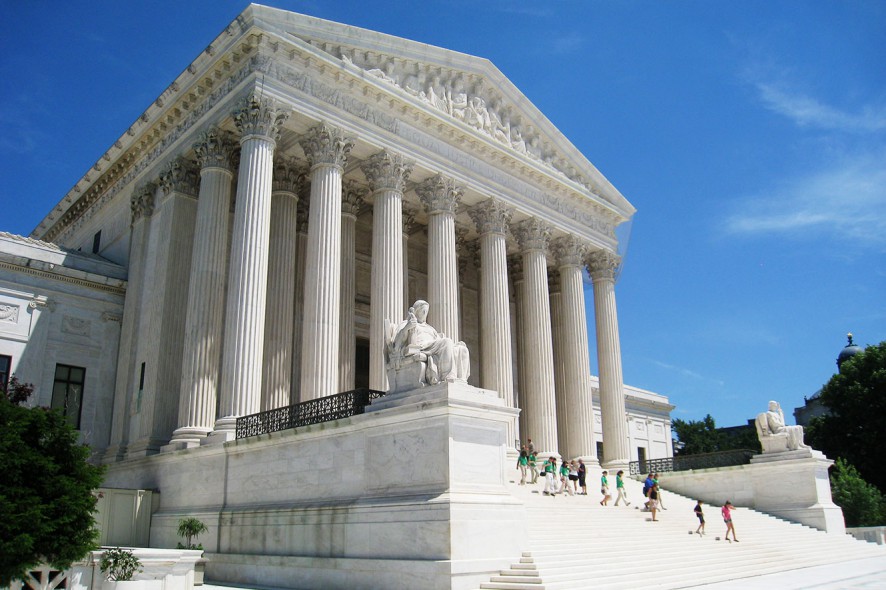Supreme Court of the United States: While looking into the validity of Louisiana’s Act 620 laying out certain laws for abortion, the 9 Judge Bench of the Court with a ratio of 5:4, held that Louisiana’s Act 620 imposes a burden on access to abortion just as severe as that imposed by the nearly similar Texas law invalidated in Whole Woman’s Health v. Hellerstedt, 579 US (2016), therefore the legislation is unconstitutional. The majority comprised of John Roberts, CJ., Ruth Bader Ginsburg, Elena Kagan, Stephen Breyer and Sonia Sotomayor, JJ.
As per Louisiana’s Act 620, “any doctor who performs abortions to hold active admitting privileges at a hospital . . . located not further than thirty miles from the location at which the abortion is performed or induced.”
The impugned Act defines ‘active admitting privileges’ as being ‘a member in good standing’ of the hospital’s medical staff . . . with the ability to admit a patient and to provide diagnostic and surgical services to such patient.” This legislation was challenged by five abortion clinics and four abortion providers for being unconstitutional as it imposed an undue burden on the right of their patients to obtain an abortion. The plaintiffs prayed for the issuance of a temporary restraining order followed by a preliminary injunction to prevent the law from taking effect. Previously, the District Court had declared Act 620 as unconstitutional on its face and preliminarily enjoined its enforcement. However, the Fifth Circuit Court reversed the decision of the District Court.
Perusing the trajectory of the case and contentions raised by the plaintiffs, the majority reversing the decision of the Fifth Circuit Court observed that, the impugned legislation and the facts of the case are very similar to an earlier decision of this Court i.e. the Whole Woman’s Health case where the Texas law on abortion was challenged.
The majority further referred to its decision in Planned Parenthood of Southeastern Pa. v. Casey, 505 U. S. 833, wherein it was held that unnecessary health regulations that have the purpose or effect of presenting a substantial obstacle to a woman seeking an abortion impose an undue burden on the right and are therefore constitutionally invalid. It was noted that in issues identical to this instant case, the Courts must independently review the legislative findings upon which an abortion-related statute rests and must weigh the law’s “asserted benefits against the burdens” it imposes on abortion access. Examining in detail the approach taken by the District Court to ascertain the unconstitutionality of the Act 620, the majority seemed satisfied with the conclusion drawn by the District Court and held that, “because Louisiana’s Act 620 imposes a burden on access to abortion just as severe as that imposed by the nearly identical Texas law invalidated four years ago in Whole Woman’s Health case it cannot stand under principles of stare decisis.”
The dissenting opinion was delivered by Clarence Thomas, Samuel Alito, Brett Kavanaugh, and Neil Gorsuch, JJ., who observed that the majority had misused the principle of stare decisis. [June Medical Services v. Stephen Russo, 2020 SCC OnLine US SC 4 , decided on 29-06-2020]







